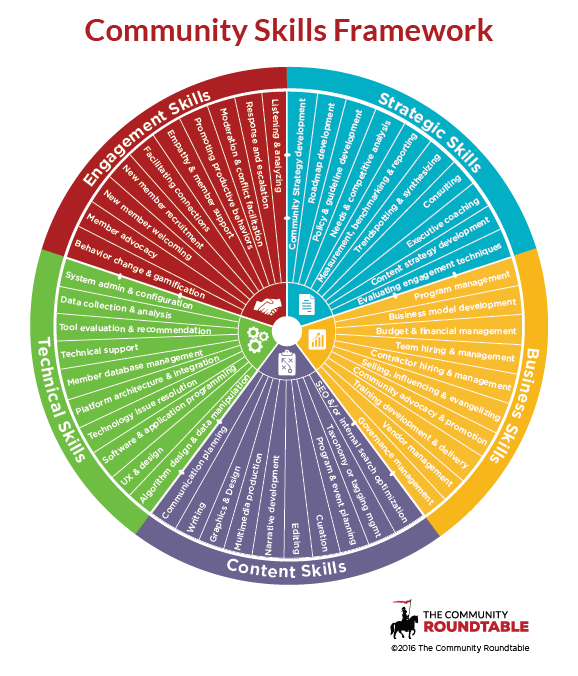
This framework was developed to show what skills can fall under a Community Management position. It is not a list of things every CM must have or do in order to run a community. Rather, these are components that lead to the successful running of a community, regardless of where the skill is sourced from.
How do I use it?
Many community managers find themselves in situations where their job title and description do not match their actual role. This framework can help you advocate for a much needed promotion, or to accurately rewrite your role.
Relatedly, many CM's run their communities solo, and this framework can help identify areas were extra team members, contractors, or organization help are needed.
There are many other opportunities where this framework can come in handy, including in launching a community, hiring or job searching, or finding areas for self improvement. We'd love to hear how it's helped you!